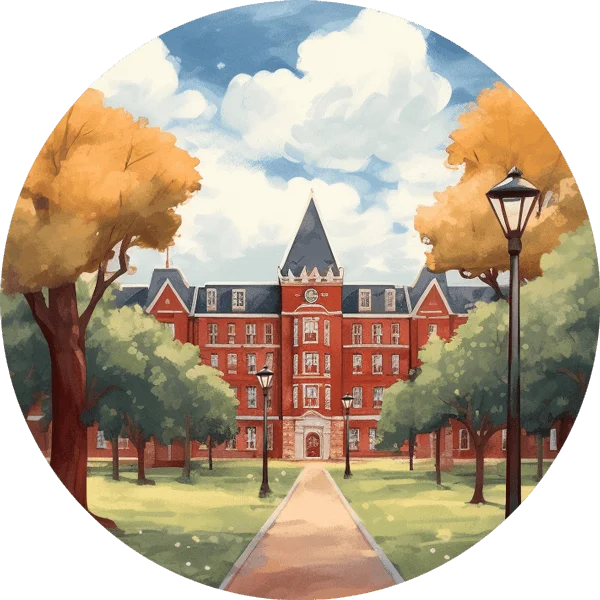& Universities

Pursuing a master’s degree in computer science is a commendable goal, even for those lacking a computer science undergraduate degree. With the rapid growth of technology, it is essential for professionals to stay up-to-date and knowledgeable in their field. A master’s program in computer science provides an opportunity for individuals to deepen their understanding of computing principles and gain specialized skills, even if their academic background is in another area.
The drive and motivation to switch gears and enter a computer science graduate program often stem from the desire to be part of the innovative and dynamic field that is shaping the world. The vision of many individuals is to make a meaningful impact on society by using technology creatively to solve problems and improve lives. A master’s degree in computer science is a stepping stone to achieving this mission, offering a chance to become a competent and successful professional in the rapidly evolving tech industry.
Why Pursue a Master’s in Computer Science Without a CS Undergraduate Degree?
- The growing demand for diverse skill sets in the tech industry.
- Advantages of transitioning into computer science from other fields.
- Success stories of professionals who made the switch.
About Ranker:
At CollegeRanker, we understand that selecting the right master’s program in computer science is a significant decision that can shape your future career. To ensure our rankings are both comprehensive and relevant, we consider several key factors when evaluating programs.
Cost: We recognize that affordability plays a critical role in decision-making. We evaluate tuition rates, availability of financial aid, and overall program cost to help prospective students make informed choices about their investment in higher education.
Accreditation: Accreditation is a fundamental aspect of program quality. All the programs in our rankings are accredited by recognized agencies, ensuring they meet high academic standards and provide students with a credible and rigorous education.
Online Flexibility: In today’s dynamic educational landscape, flexibility is key. We prioritize programs that offer online options, allowing students to balance their studies with other personal or professional commitments.
Faculty Expertise: A program’s faculty plays a crucial role in delivering quality education. We assess faculty members’ academic credentials, industry experience, and research contributions to ensure they provide students with a robust learning experience.
Curriculum and Specializations: The depth and variety of the curriculum are essential to ensure the program aligns with students’ career goals. We examine whether the program offers specializations or areas of focus that meet students’ personal interests or career aspirations.
Top Master’s in Computer Science Programs for Non-CS Majors in 2025
The field of computer science continues to grow and attract students from various educational backgrounds, including those who did not have an undergraduate degree in computer science. Several top universities offer master’s programs in computer science tailored for students without a computer science undergraduate degree, providing them with a solid foundation and the skills needed to excel in the tech industry.
Massachusetts Institute of Technology (MIT)
The Master’s in Computer Science at the University of California, Berkeley, is designed for individuals who do not have an undergraduate degree in Computer Science. The program offers an accelerated and comprehensive curriculum, which allows non-CS undergraduates to transition into the field of computer science. Students have access to a world-class faculty, cutting-edge research, and facilities that rank the university among the top in the nation for technology and engineering. The program is accredited by the Western Association of Schools and Colleges (WASC) and typically spans 2-3 years for full-time students, with options for part-time enrollment. Key features include hands-on learning, access to a wide range of specializations such as AI, cybersecurity, and data science, and robust industry connections through internships and career services.
The estimated annual tuition for out-of-state students is approximately $50,000, while in-state students can expect to pay around $25,000 per year. Additional costs may include fees, housing, and living expenses, bringing the total cost of attendance to around $70,000 per year for out-of-state students.
Berkeley’s program is known for its flexible structure that accommodates students with non-traditional backgrounds. It combines rigorous coursework with practical experience, providing a solid foundation in both theoretical and applied computer science. Students benefit from the university’s innovative environment, its extensive research opportunities, and its strong alumni network. Graduates are highly sought after by top tech companies, making it an excellent choice for career advancement in tech.
Northeastern University
Northeastern University’s Master’s in Computer Science is ideal for individuals without a CS undergraduate degree but who wish to transition into the field. The program emphasizes hands-on learning and real-world experience, thanks to the university’s renowned co-op (cooperative education) program. It offers both full-time and part-time options, typically taking 2-3 years to complete. Accredited by the New England Commission of Higher Education (NECHE), the program covers foundational topics in computer science, including algorithms, data structures, and software engineering, while also offering specialized courses in areas like machine learning, cybersecurity, and artificial intelligence. The interdisciplinary approach allows students to gain experience in practical applications, preparing them for leadership roles in the tech industry.
The estimated cost for the Master’s in Computer Science at Northeastern University is around $55,000 per year for full-time students. The exact cost may vary based on the number of credits taken each semester. In addition to tuition, students should budget for fees, books, and living expenses, which can bring the total cost of attendance to approximately $70,000 per year.
Northeastern’s program is highly regarded for its strong emphasis on experiential learning through co-ops, which allow students to work in professional environments and gain industry experience while completing their degree. The program offers excellent flexibility with multiple start dates throughout the year. Students benefit from Northeastern’s extensive network of global employers and its robust focus on innovation and research. The program is designed to support individuals transitioning from different academic backgrounds, making it an excellent choice for those aiming to shift to computer science.
Columbia University
Columbia University’s Master’s in Computer Science offers a flexible and rigorous curriculum, specifically designed for students without a formal background in Computer Science. The program provides foundational courses in computer science along with advanced electives in areas like artificial intelligence, data science, and machine learning. It is accredited by the Middle States Commission on Higher Education (MSCHE) and offers a full-time, two-year track, though part-time options are available for those balancing work or other commitments. The program emphasizes both theoretical understanding and practical application, allowing students to conduct research and work on real-world projects. Additionally, Columbia’s location in New York City provides students with unparalleled access to tech companies, start-ups, and a global network of professionals.
The estimated tuition for the Master’s in Computer Science at Columbia University is approximately $60,000 per year. This amount does not include additional costs such as fees, books, and living expenses, which can bring the total cost of attendance to around $80,000 annually. Financial aid and scholarships are available for eligible students.
Columbia’s program is highly regarded for its world-class faculty, rigorous academic standards, and strong focus on research and innovation. The university’s extensive network of alumni and connections to the tech industry in New York City offers exceptional career opportunities for graduates. Columbia’s access to state-of-the-art facilities and cutting-edge research ensures that students gain a top-tier education in computer science, even without a CS undergraduate degree. The program is ideal for individuals looking to pivot into tech and advance their careers.
Conclusion:
Choosing the right master’s program in computer science is essential to advancing your career, especially when coming from a non-CS undergraduate background. It’s important to evaluate each program based on your personal goals, whether you’re seeking a specific specialization, an affordable option, or a flexible online learning environment. Consider your professional aspirations, time commitment, and learning preferences when making your decision. The right program can provide you with the tools and knowledge to succeed in the ever-evolving tech industry.
We encourage you to explore further and reach out to programs that pique your interest to get a better understanding of what they offer. Don’t hesitate to inquire about course content, faculty, or financial assistance to make an informed and confident choice about your future educational journey.


